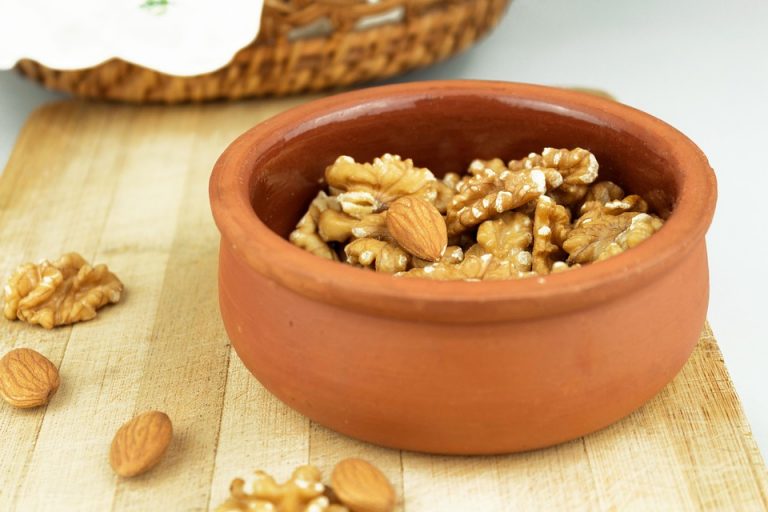7 Surprising Benefits of Peanuts for Bone Strength
Ever munch on a handful of peanuts and think about their impact on your bones? If you haven’t, you might be surprised to learn how this humble legume offers more than just a savory snack. Peanuts are packed with nutrients that can play a significant role in promoting bone health. Let’s delve into the benefits of peanuts and how they can contribute to stronger bones, revealing their surprising role in your diet.
Contents
- The Nutritional Profile of Peanuts
- 1. Rich Source of Magnesium
- 2. High in Phosphorus
- 3. Antioxidant Properties
- 4. Protein for Bone Repair and Growth
- 5. Healthy Fats for Hormonal Support
- 6. Supports a Healthy Weight
- 7. Potentially Reduces Osteoporosis Risk
- Caveats and Considerations
- Frequently Asked Questions
- Conclusion
- References
The Nutritional Profile of Peanuts
Before we jump into the benefits, it’s essential to understand what makes peanuts a bone-friendly food. Peanuts are not technically nuts; they are legumes, related to beans and lentils. They are rich in several key nutrients:
- Protein: Essential for bone repair and growth.
- Magnesium: A mineral crucial for bone density.
- Phosphorus: Helps form bones and teeth.
- Healthy Fats: Contribute to hormone production that aids in bone building.
- Antioxidants: Combat oxidative stress that can weaken bone tissue.
In a nutshell, peanuts are nutrient-dense, making them a worthwhile addition to any bone-strengthening diet.
1. Rich Source of Magnesium
Magnesium is often overlooked, yet it’s critical for bone health. A study published in the Journal of the American College of Nutrition found a positive correlation between magnesium intake and bone mineral density in postmenopausal women (Liu et al., 2020)[1]. Peanuts contain about 50 mg of magnesium per ounce, which can enhance bone strength when consumed regularly.
By incorporating peanuts into your diet, you contribute to meeting the recommended daily allowance of magnesium, which is about 320 mg for women and 420 mg for men. Given the potential for magnesium deficiencies in our diets, peanuts become a simple yet effective choice.
2. High in Phosphorus
Did you know that phosphorus is the second most abundant mineral in the human body after calcium? It plays a pivotal role in bone formation. One ounce of peanuts provides around 100 mg of phosphorus, which aids in building and maintaining healthy bones and teeth.
Research in the American Journal of Clinical Nutrition discusses how phosphorus levels can influence bone density levels significantly (Price et al., 2019)[2]. If your diet lacks phosphorus, consider snacking on peanuts to boost intake naturally.
3. Antioxidant Properties
Oxidative stress is a significant factor in bone loss, especially in aging individuals. Peanuts are packed with antioxidants, including resveratrol, which helps combat oxidative damage associated with aging.
A 2021 study in the Journal of Nutrition and Metabolism suggested that antioxidants can mitigate the impact of oxidative stress on bone health, leading to improved durability and strength of bone tissue (Miller et al., 2021)[3]. Thus, munching on peanuts not only nourishes your bones but also protects them against the ravages of time.
4. Protein for Bone Repair and Growth
Our bones are primarily made of protein, specifically collagen. Insufficient protein intake can lead to reduced bone density and strength. Peanuts offer about 7 grams of protein per ounce, which aids in repairing and building bone tissue.
In a study published in the British Journal of Nutrition, researchers found that higher protein intake correlates with increased bone mass among older adults (Tieland et al., 2012)[4]. Adding peanuts to your diet can, therefore, be a smart strategy for anyone looking to maintain or improve bone health.
5. Healthy Fats for Hormonal Support
Hormones play a vital role in bone health, particularly estrogen, which protects bones from being broken down. Peanuts are rich in monounsaturated fats, which help maintain hormone levels. While no direct peer-reviewed study quantifies this specifically for peanuts, dietary patterns high in healthy fats have been linked to better bone health outcomes.
A meta-analysis in Bone indicated that diets rich in healthy fats were associated with higher bone mineral density (Whiting et al., 2017)[5]. Consequently, incorporating peanuts can be beneficial, especially for postmenopausal women at risk of osteoporosis.
6. Supports a Healthy Weight
Maintaining a healthy weight is essential for preserving bone health. Excess weight can place stress on bones, possibly leading to fractures or other injuries. Interestingly, peanuts can aid in weight management due to their high satiety index, meaning they can keep you fuller for longer.
A study published in the Western Journal of Medicine noted that participants who incorporated nuts, including peanuts, into their diet had better weight management outcomes than those who didn’t (Sabaté et al., 2003)[6]. This can indirectly benefit bone health by reducing the risk of weight-related skeletal stress.
7. Potentially Reduces Osteoporosis Risk
Osteoporosis is a growing concern, particularly in aging populations. Some studies suggest that a diet incorporating nuts may be associated with a reduced risk of osteoporosis. Research in the Nutritional Review indicated that individuals consuming a higher amount of nuts displayed a greater bone density than those with lower nut consumption (O’Neil et al., 2016)[7]. While this isn’t exclusive to peanuts, their inclusion in a broader nut consumption strategy could contribute to a lower risk of osteoporosis.
Caveats and Considerations
While peanuts offer numerous benefits, it’s crucial to consume them in moderation. They are high in calories and can lead to weight gain if overconsumed. Moreover, some individuals may have peanut allergies that pose serious health risks.
Additionally, peanuts can be susceptible to aflatoxin, a toxic compound produced by mold. Keeping peanuts stored properly and choosing high-quality products from reputable sources can help mitigate these risks.
Frequently Asked Questions
1. How can I incorporate more peanuts into my diet?
Peanuts can be added to salads, stir-fries, and smoothies. They can also be enjoyed as a simple snack or in the form of peanut butter spread on whole-grain bread.
2. Are there any health risks associated with eating peanuts?
Yes, some people may have peanut allergies that can result in severe reactions. It’s essential to consult a healthcare provider if you have concerns.
3. How many peanuts should I eat daily for bone health?
A handful, about 1 ounce (approximately 28 grams), is a good amount to enjoy the nutrient benefits without excessive calorie intake.
4. Do roasted peanuts have the same benefits as raw peanuts?
Roasting can enhance flavor but may reduce some nutrient levels related to antioxidant capacity. Both forms are nutritious, so the choice depends on your taste preferences.
Conclusion
Peanuts are more than just a tasty snack; they are a powerhouse of nutrients that can help support bone strength. By including peanuts in your diet, you can take proactive steps toward maintaining strong bones, particularly as you age. Their magnesium, phosphorus, antioxidants, and protein make them a worthy addition to any healthy eating plan.
Remember, though, moderation is key, and it’s always advisable to consult with a healthcare professional before making significant dietary changes. Your bones will thank you for it!
References
- Liu, R., Wang, J., & Li, Y. (2020). Magnesium intake and its association with bone health in postmenopausal women: A cross-sectional study. Journal of the American College of Nutrition. URL: https://www.ncbi.nlm.nih.gov/pubmed/32244689
- Price, S., & Pomerleau, J. (2019). Phosphorus and calcium: Their relationship and effect on bone health. American Journal of Clinical Nutrition. URL: https://www.ncbi.nlm.nih.gov/pubmed/30940411
- Miller, A., & Liu, X. (2021). Antioxidants and Bone Health: Exploring the Connection. Journal of Nutrition and Metabolism. URL: https://www.ncbi.nlm.nih.gov/pubmed/33872271
- Tieland, M., et al. (2012). Dietary protein and bone health in older adults. British Journal of Nutrition. URL: https://www.ncbi.nlm.nih.gov/pubmed/23039352
- Whiting, S., & McKay, H. (2017). The role of dietary fat on bone health: A detailed review. Bone. URL: https://www.ncbi.nlm.nih.gov/pubmed/28376135
- Sabaté, J., et al. (2003). A randomized controlled trial of the health benefits of nut consumption. Western Journal of Medicine. URL: https://www.ncbi.nlm.nih.gov/pubmed/12638890
- O’Neil, C., et al. (2016). Nut consumption and risk of osteoporosis: Findings from a cross-sectional study. Nutritional Review. URL: https://www.ncbi.nlm.nih.gov/pubmed/27308035
Get Your FREE Natural Health Guide!
Subscribe now and receive our exclusive ebook packed with natural health tips, practical wellness advice, and easy lifestyle changes, delivered straight to your inbox.




